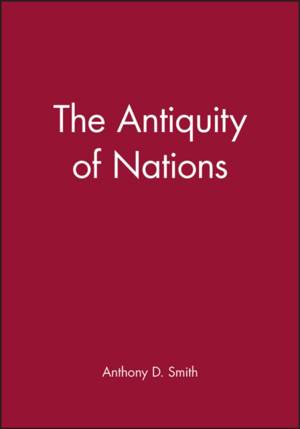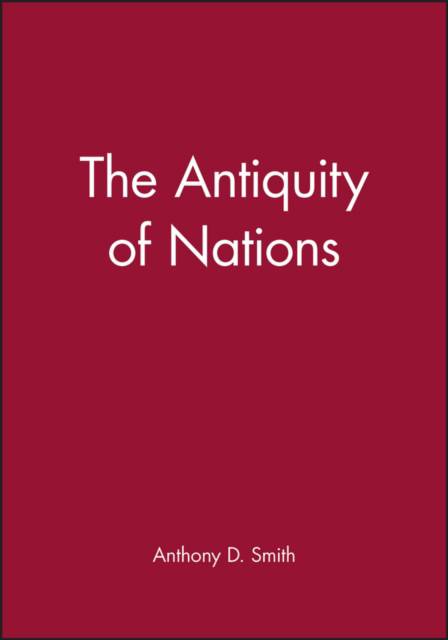
- Retrait gratuit dans votre magasin Club
- 7.000.000 titres dans notre catalogue
- Payer en toute sécurité
- Toujours un magasin près de chez vous
- Retrait gratuit dans votre magasin Club
- 7.000.0000 titres dans notre catalogue
- Payer en toute sécurité
- Toujours un magasin près de chez vous
Description
In The Antiquity of Nations, Anthony Smith provides a fresh interpretation of the character of modern nations. Departing from conventional wisdom, he argues the case for a deeper understanding of their character, based on an ethno-symbolic analysis of the myths, memories, symbols and traditions of pre-modern ethnic communities. Building on his earlier work, the author seeks to balance the undeniable novel components of the nation with its ancient, rooted and persistent attributes.
In the first part, the author provides a sustained critique of the theories of some of the main exponents of modernism, the current orthodoxy in the study of nations and nationalism, tracing its origins to the Eurocentric and evolutionist assumptions of classical sociology. Part Two backs up this challenge through an exploration of key historical and sociological issues. These include the possibility of finding `nations' in antiquity, the impact of war on ethnicity at various periods of history, the long-term routes to nationhood and their modern consequences, the nature and functions of `golden ages, and the impact of Romanticism on nationalism. The result is a more rounded and penetrating understanding of one of the most complex phenomena in the modern world.
The Antiquity of Nations will be essential reading for all scholars of nationalism and for all students taking courses on nationalism and ethnicity.
In the first part, the author provides a sustained critique of the theories of some of the main exponents of modernism, the current orthodoxy in the study of nations and nationalism, tracing its origins to the Eurocentric and evolutionist assumptions of classical sociology. Part Two backs up this challenge through an exploration of key historical and sociological issues. These include the possibility of finding `nations' in antiquity, the impact of war on ethnicity at various periods of history, the long-term routes to nationhood and their modern consequences, the nature and functions of `golden ages, and the impact of Romanticism on nationalism. The result is a more rounded and penetrating understanding of one of the most complex phenomena in the modern world.
The Antiquity of Nations will be essential reading for all scholars of nationalism and for all students taking courses on nationalism and ethnicity.
Spécifications
Parties prenantes
- Auteur(s) :
- Editeur:
Contenu
- Nombre de pages :
- 266
- Langue:
- Anglais
Caractéristiques
- EAN:
- 9780745627465
- Date de parution :
- 03-09-04
- Format:
- Livre broché
- Format numérique:
- Trade paperback (VS)
- Dimensions :
- 157 mm x 229 mm
- Poids :
- 412 g

Les avis
Nous publions uniquement les avis qui respectent les conditions requises. Consultez nos conditions pour les avis.






